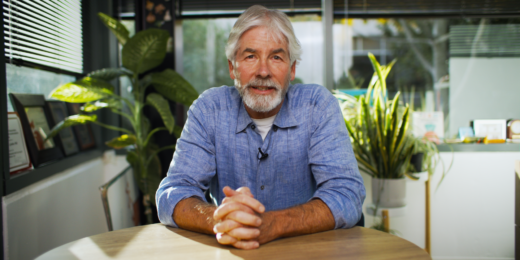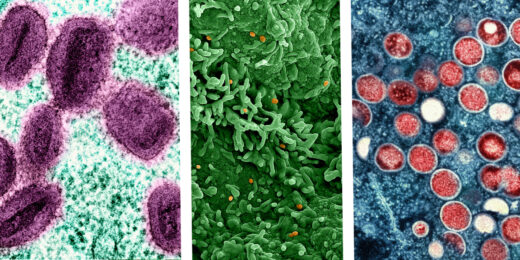Super-talented cellist Josh Roman opens up about how the condition caused him to doubt himself and his music. Now he’s back and sharing his story — at Stanford Medicine and well beyond.
Category: Health Policy
What’s the deal with microplastics, the material that ‘never goes away’?
Whether we know it, or like it, our bodies are polluted by tiny fragments of plastic that fail to break down in our earthly environment. What does that mean for our long-term health, and what can we do about it?
Can group texting therapy help new moms with depression?
When new or expectant mothers experience depression in the peripartum period, serious problems can manifest for those children down the line.
More beans, peas, lentils: A nutrition expert’s take on new guidelines
Americans are not eating well, Stanford Medicine's Christopher Gardner says, but he is hopeful that encouraging patterns of eating — such as the Mediterranean diet — will help us improve our habits.
Meet the doctor tackling harassment, abuse, inequity in sports
Yetsa Adebodunde Tuakli-Wosornu, who wouldn’t be the person she is today without sports, led the charge for a new and improved International Olympic Committee consensus statement on interpersonal violence and safeguarding in sports.
Optimizing the telehealth experience could benefit patient, physician
Stanford Medicine's Kevin Schulman says digitally enabled care (DEC) would ease clinical workload and improve services for patients beyond virtual visits.
What’s the deal with BMI, aka body mass index?
Some researchers and clinicians are questioning the value of the body mass index, which estimates a person’s body composition. But do better alternatives exist?
How supporting family, along with patients, became part of hospital’s mission
When the new Stanford Hospital opened five years ago, a carefully designed third-floor resource center gave for those caring for loved ones an important safe haven.
Biodesign cultivates community partnerships to broaden understanding of health equity
Biodesign program aims to ensure all trainees have a better understanding of health equity and appreciate the ways in which new technologies can widen or narrow the gaps in access to care.
A doctor, his cancer journey and a uniquely teachable moment
Bryant Lin has taken his diagnosis of stage IV ‘never-smoker’ lung cancer, which disproportionately affects those of Asian descent, and turned it into a medical school course. He hopes the world takes notes along with the students and Stanford Medicine community.
California excels at screening babies for main cause of childhood blindness
Vision damage from a complication of premature birth can be halted if it’s caught soon enough — and a California Perinatal Quality Care (CPQCC) and Stanford Medicine-led study shows the state’s screening process is helping close racial gaps.
From ballet to medicine, a love of stories has driven this bioethicist
Stanford Medicine bioethicist Tyler Tate found high levels of success in ballet, miming, acting, fencing and collegiate tennis. But his love of storytelling ultimately led him to medicine.
Understanding the resurgence of mpox
As a new form of the viral disease spreads through Central Africa, prompting a global emergency declaration, Stanford Medicine infectious disease specialist Abraar Karan discusses how health systems can prepare and respond.
Is your asthma inhaler bad for the environment?
A team of physician-scientists calculated how much greenhouse gas is being emitted by inhalers prescribed for asthma and chronic obstructive pulmonary disease.
How mixing music and medicine keeps this doctor grounded
The Unconventional Path of Stanford Medicine hematologist Tamara Dunn had her eyeing a career on Broadway.
Paying back her people: New doctor has plans to return to her African village
Bongeka Zuma, graduate of Oprah Winfrey’s academy and Stanford School of Medicine, discusses her plans to advance medical care in her hometown.

















